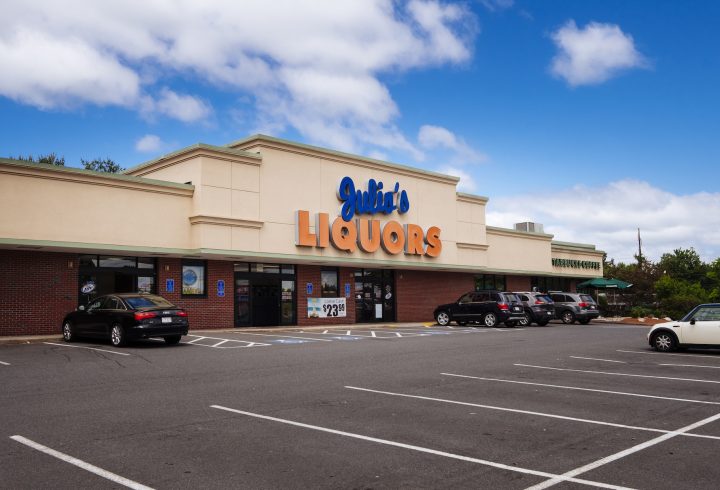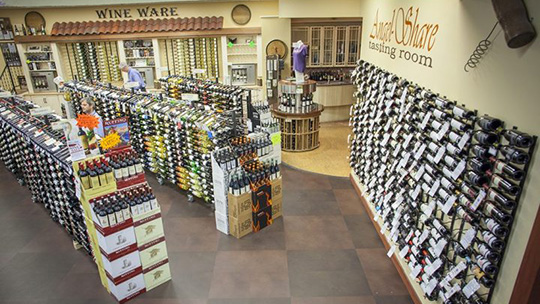
Convenience store franchise Cumberland Farms’ proposal to change beverage alcohol retail licensing laws in Massachusetts has spiraled into a thorny legal battle. The Massachusetts Package Store Association (MPSA) has squared off against what it claims is an attempt by UK-based EG Group—which acquired Cumberland Farms last October—to deregulate the state retail tier licensing system to increase its value as it eyes an IPO. Cumberland Farms’ proposal would eliminate the cap on beer and wine licenses for food stores. “We are fighting somebody who is intentionally using the ballot process system to deregulate the state of Massachusetts in order for them to take market place control of the beer and wine market,” says executive director and general counsel of the MPSA Rob Mellion.
Many Massachusetts retailers agree. “This is a foreign company abusing the ballot process for corporate gain,” says Ryan Maloney, owner of Julio’s Liquors in Westborough, Massachusetts and a member of the board of directors for MPSA. “The ballot question system was never meant for a single corporate entity to get stuff passed. It’s for people to get stuff passed.”
Earlier this year, the maximum number of retail beverage alcohol licenses a single entity can own in Massachusetts increased from seven to nine. Cumberland Farms has seven licenses and is seeking two more, but doesn’t want to stop there. “It’s past time to reform these outdated laws, and Massachusetts voters will agree,” says Matt Durand, the chain’s head of public policy. “If they have the chance to cast a ballot on this issue, based on the data we have, this is a winning campaign.”
The convenience chain appeared to score a recent legal victory when the Massachusetts Supreme Judicial Court upheld state Attorney General Maura Healy’s 2019 certification of the possible November 2020 ballot question. If approved by voters, Cumberland Farms could sell beer and wine in all of its 206 locations statewide.
But recently, Cumberland Farms sued Healy and Secretary of State William Gavin, unhappy with the ballot question’s amended title wording from “Sale of Beer and Wine by Food Stores” to “Expanded Alcoholic Beverage Licenses.” Cumberland Farms claimed the title and its one-sentence statement are “false, misleading, or inconsistent.” Healy and Gavin “contend that no such relief is warranted” to amend the ballot question. Oral arguments were scheduled for June 19 in the Supreme Judicial Court in Boston.

The ballot question, meanwhile, still needs more than 13,000 signatures certified by the Secretary of State by July 1. “We allege they are not getting signatures in good faith because they are not using the language provided by the state,” Mellion says, noting that the MPSA is litigating as co-defendants on the ballot title issue. “We’re organizing now,” he adds. “I’m making a presumption they will get their signatures. If I’m not able to deal with the ballot question with the signatures, then I need to preserve the AG’s language.”
Durand says the proposed ballot measure is about giving consumers more shopping options. “Food stores want to offer a convenient option for that last-minute bottle of wine with dinner, or that six-pack of beer you forgot to buy before the big game,” Durand says. “Food stores like Cumberland Farms don’t have the shelf space or the demand to support the type of inventory that package stores provide.”
Under Cumberland Farms’ proposal, the number of licenses for other retail beverage alcohol retailers would increase each year but would not be fully eliminated until 2024. “They create a provision for themselves that creates an instant unlimited license outside of the municipal quota system while making an unrestricted license for everybody else tied to the municipal quota system,” Mellion contends.
There are about 2,300-2,500 beverage alcohol licenses in Massachusetts based on a quota system of one license per 5,000 residents. If the ballot proposal is approved, Mellion estimates the number could increase by an additional 5,000 licenses. In addition to eliminating caps on retail licenses, the proposal creates food store licenses, proposes changes in age-verification policies, and offers plans to increase enforcement funding.